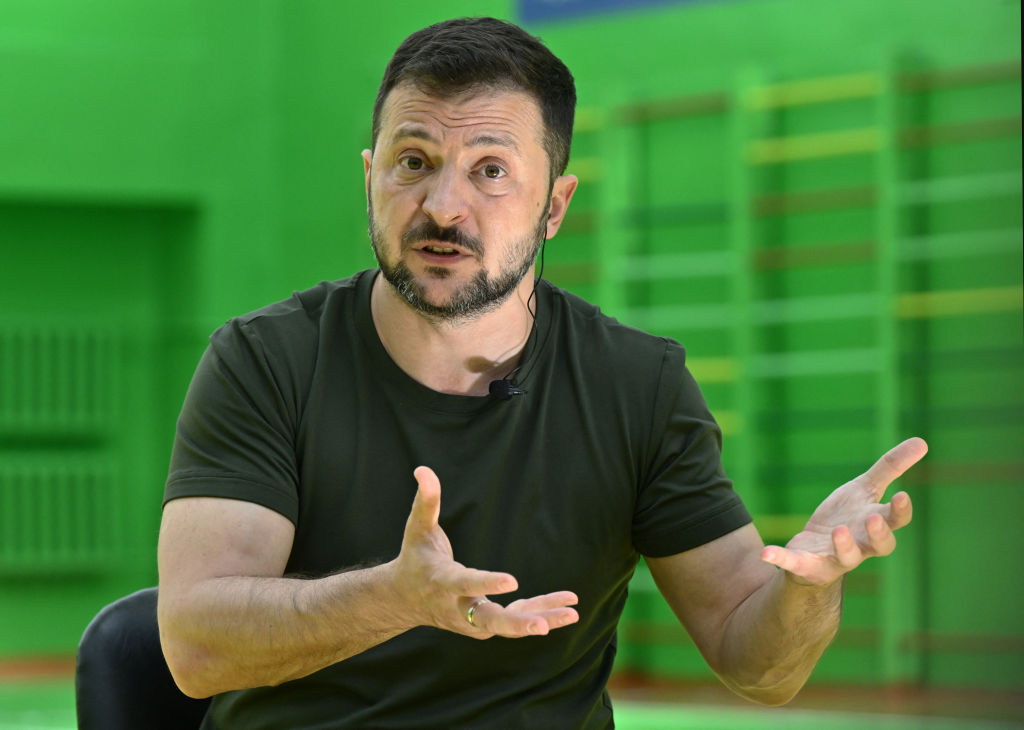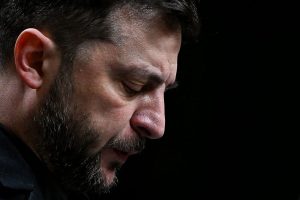In Ukraine, there is a joke: never waste time memorizing the names of ministers — they’ll be replaced soon enough. Volodymyr Zelensky’s penchant for firing and rehiring every few months has become a signature of his presidency since 2019. This week has not been different, with the largest government shake-up since the full-scale war began. Or, as it turned out, just a reshuffle of the same familiar faces.
“We need new energy today,” Zelensky declared, as he instructed the Ukrainian parliament to dismiss and reappoint almost half the cabinet — eight ministers in total. “Fall will be important for Ukraine. Our institutions must be set up so the country achieves all the results it needs.” His team is gearing up for a critical trip to the US this month, where Zelensky will attend the UN General Assembly and meet Joe Biden. Zelensky promised to present the US President with a “victory plan” — one that supposedly will force Russia to the negotiating table.
Zelensky’s government has been running on fumes after five years in power.
But when it comes to “new energy” and “fresh vision,” Zelensky’s appointees seem to be the same old crowd, reshuffled between ministries, with one promoted to be his advisor. The headline change is the departure of Dmytro Kuleba, Ukraine’s youngest and arguably most effective foreign minister, who rallied global support during the war. Known for his sharp criticism, Kuleba recently blamed unnamed allies for delaying the delivery of promised Patriot air defense systems and clashed with Warsaw over the issue of the Volyn massacre. He also couldn’t convince Washington to lift restrictions on striking deep into Russia with western long-range missiles. It’s hard to pin that one on him, though.
Zelensky’s government has been running on fumes after five years in power. It is desperate for fresh staff. But with elections forbidden by the Constitution during martial law, the president is left recycling the same names, moving them from the cabinet to the presidential office and back again. Parliament only comes into play when the president needs a vote. His inner circle, led by the influential Andriy Yermak, no longer bothers to share strategy with MPs, who are increasingly feeling sidelined. Martial law has handed Zelensky power no previous president had, and this reshuffle is about making sure the system runs on his command.
While the opposition blames Zelensky for consolidating his grip on power, the members of his party argue he needs loyal — reliable — people around him in these tough times. And tough they are: civilians and energy infrastructure are under relentless bombardment, winter blackouts loom, Russian forces are pushing hard in Donetsk and the US election threatens to cut off vital aid.
The tired government apparatus badly needs elections, but ending the war is a priority. Most Ukrainians agree, as polls show. But meanwhile, Zelensky should be careful about his reshuffles. For a country fighting to prove it’s on the side of democracy, the last thing Ukraine can afford is to lose its reputation in the eyes of its allies.
This article was originally published on The Spectator’s UK website.


























Leave a Reply